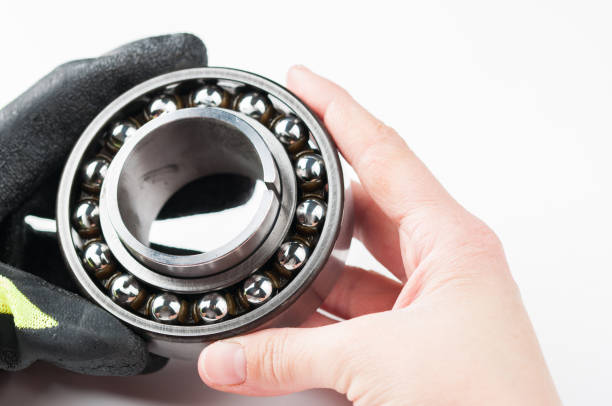Although small, wheel bearings are essential to your car’s suspension system because they lower friction and maintain wheel rotation. These bearings consist of steel balls or rollers enclosed in a metal ring that works with wheel assembly components. When functioning correctly, wheel bearings allow your wheels to rotate and contribute to the stability of your vehicle. It’s essential to prioritize the upkeep of wheel bearings as they directly impact your vehicle’s performance and safety, and neglecting their maintenance can lead to issues. Knowing what to do if your wheel bearing is bad is essential for maintaining the safety and functionality of your vehicle.
Signs That Your Wheel Bearings Are Beginning to Fail
Recognizing signs of failing wheel bearings can help prevent repairs and enhance driving safety. Here are some common warning signs:
- Noises: If you hear grinding, humming, or roaring sounds from your wheels while driving, it could indicate deteriorating wheel bearings. These noises become more noticeable as you accelerate, making driving less comfortable and potentially dangerous.
- Feeling vibrations: Vibrations in the steering wheel or throughout the vehicle could indicate issues with the wheel bearings. These vibrations might be more noticeable when accelerating or turning.
- Uneven Tire Wear: When wheel bearings wear down, tires wear unevenly, leading to handling issues, decreased fuel efficiency, and tire replacements.
- Vehicle Pulling to One Side: If your car pulls to one side without braking, it could be caused by wheel issues caused by bearings. This affects driving comfort and poses safety risks at higher speeds.
Risks of Neglecting Wheel Bearing Issues
Paying attention to the warning signals of wheel bearing problems is critical because ignoring them can cause costly damage to your car. Initially, you may notice a decline in car performance, making smooth driving difficult. Over time, the added strain on suspension components could lead to failures. The critical risk is the potential for a wheel detachment while driving, which could cause accidents. Properly maintaining wheel bearings is essential for vehicle performance and ensuring your safety and that of your passengers. Regular checks and immediate fixes can help prevent these situations and save you from costly repairs.
How to Check Wheel Bearings
Inspecting your wheel bearings at home can help you assess their condition. Here’s a simple step-by-step guide:
- Begin by lifting your vehicle using a jack and securing it with stands.
- Rotate each wheel slowly while listening for any noises. No sounds indicate the bearings are working fine, but unusual noises could signal a problem.
- Gently wiggle the wheel at the 12 and 6 o’clock positions to check for movement. Any play or looseness may suggest that the bearings are worn out.
- If you notice any sounds, it may be a sign that your wheel bearings must be replaced. Also, check the alignment of the wheels and look for signs of tire wear.
- If you need more clarification about performing these tests, it’s recommended that you seek help from a mechanic. A diagnosis and timely intervention can help prevent issues and improve road safety.
Maintaining Wheel Bearings
Taking care of your wheel bearings is essential, extending their lifespan and ensuring the safety of your vehicle.
Here are some vital pointers to keep in mind when maintaining your car:
- Inspections: It’s a good idea to regularly inspect your wheel bearings, especially if you often drive on rough or bumpy roads. Detecting any signs of wear and tear can help prevent problems.
- Proper Lubrication: Ensure your wheel bearings are well lubricated to reduce friction and avoid wear. Using high-quality grease specifically designed for automotive wheel bearings can significantly extend their lifespan.
- Avoid Overloading: Do not overload your car, as this might stress other components, including the wheel bearings. Adhering to the recommended load limits for your vehicle can help maintain the health of your bearings.
Closing Thoughts;
It’s crucial to understand the significance of well-functioning wheel bearings and to recognize signs of failure. This awareness can help you avoid costly repairs and ensure a safer driving experience. Consistent maintenance checks and timely inspections are crucial in maintaining optimal vehicle performance and safety on the road. Addressing any issues before they worsen will help you ensure secure drives. Recognizing the importance of functioning wheel bearings and being able to spot signs of failure can save you from repairs and promote a safer driving experience. Timely and routine inspections and maintenance facilitate the best possible performance and safety of vehicles on the road. You can guarantee secure drives by handling any problems before they get worse.

